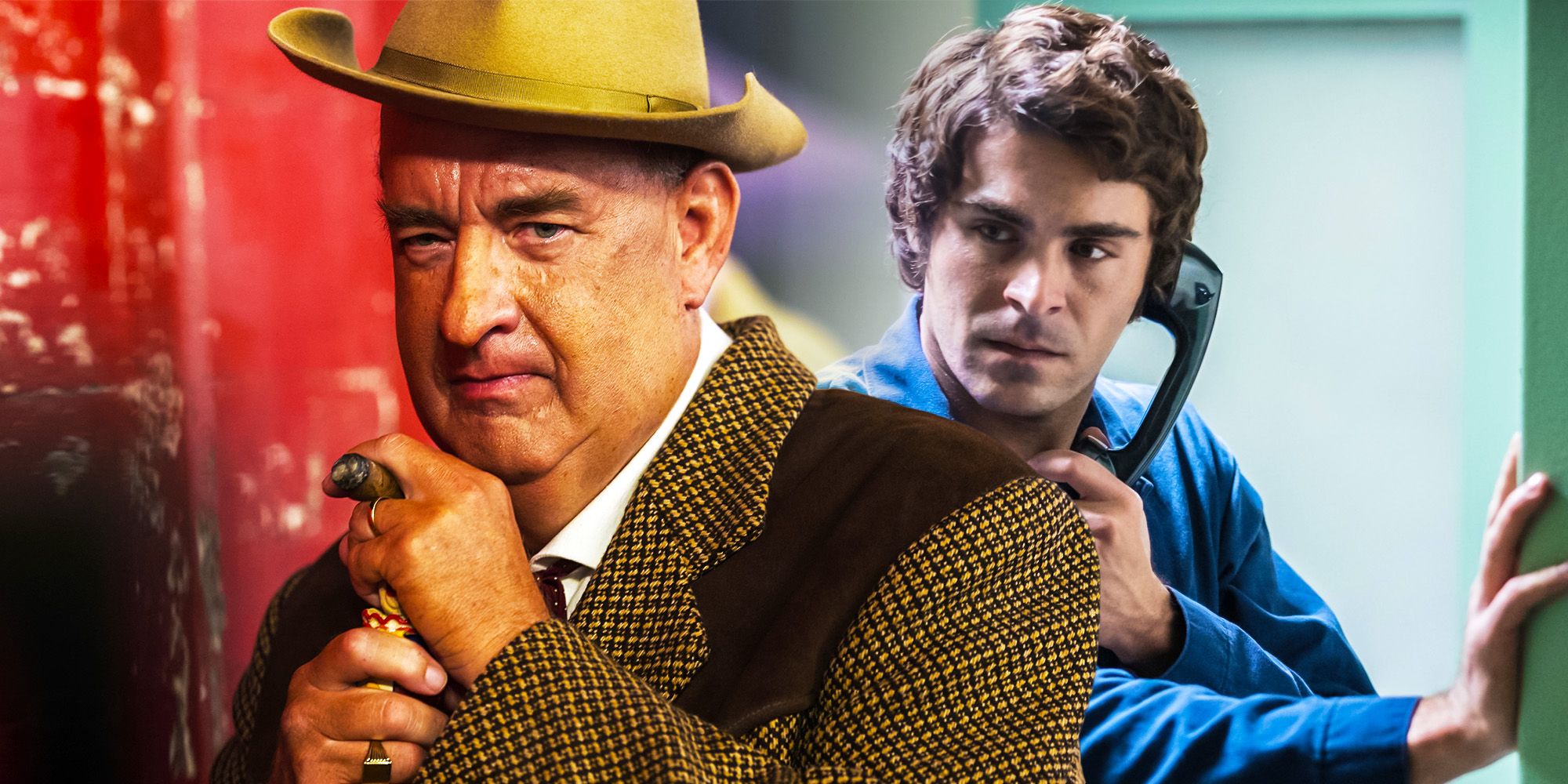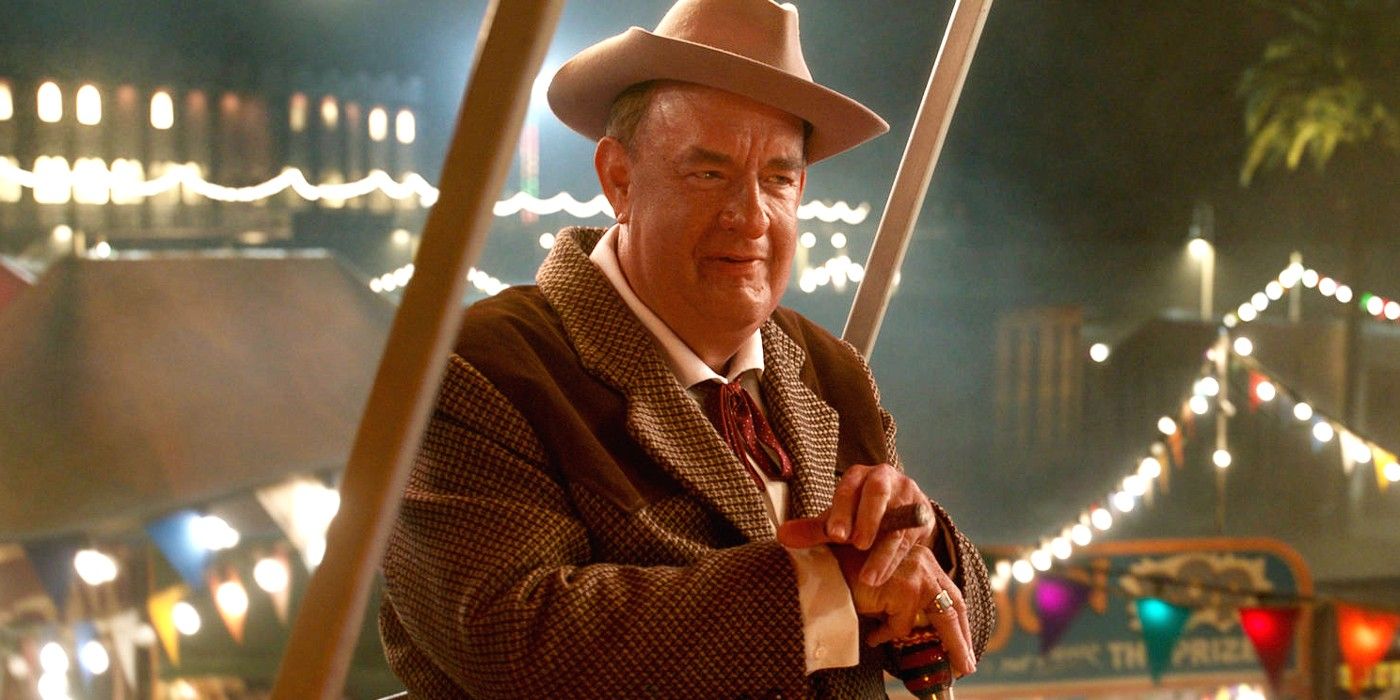Warning: Contains SPOILERS for Elvis.
Tom Hanks' character Colonel Parker in Baz Luhrmann's Elvis biopic creates a problem reminiscent of how Hollywood handled Ted Bundy in Extremely Wicked, Shockingly Evil, and Vile. A large part of the Elvis biopic centers around Elvis Presley's relationship with his manager, Colonel Tom Parker. Colonel Parker is shown to be one of the most important figures in Elvis' life, even telling him early on in the film that Parker is like a father to him after the death of Elvis' mother.
Throughout the film, Colonel Parker is characterized as someone whose decisions are driven by money, but the benefits of those decisions are presented as beneficial to Elvis as well as himself and are something that they bond over. It isn't until later in the film that it's made clear that there is more to Hanks' Colonel than he initially lets on, as it is revealed he does not want himself - or Elvis - to leave the country. This becomes a major plot point in the film as Elvis eventually becomes frustrated at Parker for keeping him from performing on an international tour that would be both financially and artistically satisfying for him, even at one point firing Parker near the ending of Elvis.
This is where Tom Hanks' Colonel Tom Parker role in the Elvis biopic falls victim to the same problem that Zac Efron's Ted Bundy had in Extremely Wicked, Shockingly Evil, and Vile. One of the biggest criticisms of Extremely Wicked was that it romanticized one of America's most prolific serial killers, even resulting in audiences unfamiliar with the real-life history surrounding the cases leaving the movie wondering if Bundy was really guilty. To a similar degree, because Colonel Parker's motivations are downplayed in Baz Luhrmann's Elvis, some audiences were left wondering if Parker was ill-intentioned or just misunderstood.
Although far from perfect, the relationship between Presley and Tom Parker depicted in Elvis still manages to gloss over many aspects of their famous dynamic. Even though Elvis showcases Colonel Parker's focus on making money through Presley, the film barely addresses the direct effects these actions had on Elvis, like Parker taking half of what Elvis made. The major conflicts shown between Parker and Presley during Elvis, such as when Presley incites a riot by wiggling his pinky at a show or when he decides to show up in an all-black-leather outfit to a Christmas special the Colonel put together, are mostly Elvis getting the better of Parker, and there is never really a sense that he is under the Colonel's thumb as he was in real-life.
When the Elvis movie is at its best, it's a tragic story of a young man who is exploited and used by those closest to him until he collapses under the weight of upholding the legend he has become. Hollywood has proven that when making a biopic, it can be difficult to know how familiar an audience is with its subject matter beforehand and, by extension, that it is easy to overlook making a clear statement on things assumed to be common knowledge. Because of this, it is easy to wonder if Colonel Parker got off too easy in Elvis for his role in what was almost certainly a predatory and toxic relationship between himself and Elvis Presley.


